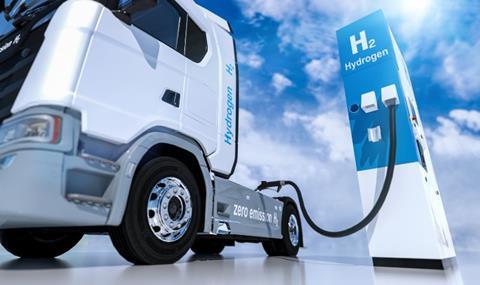
The UK government’s ambitious new climate change target of cutting emissions by 78% by 2035 must involve its backing of fuel cells if it is to achieve net zero, according to hydrogen supporters.
The government said its new carbon budget will ensure the country remained on track to end its contribution to climate change while remaining consistent with the Paris Agreement temperature goal to limit global warming to below 2°C and pursue efforts towards 1.5°C.
It is already working towards a commitment to reduce emissions in 2030 by at least 68% compared to 1990 levels through the UK’s latest nationally determined contribution.
Celia Greaves, chief executive of the UK Hydrogen and Fuel Cell Association, said the ambitious target posed a number of challenges, “including how we decarbonise heavy transport as well as power a number of energy-intensive sectors across the economy and heat our homes”, she said.
“Hydrogen and fuel cell technology can provide a solution to both, through the heating of homes through the existing gas network and decarbonising heavy industry, HGVs, buses, trains, aviation and shipping.”
Greaves added that the government needed to create the right environment for the hydrogen industry to thrive and put its backing behind fuel cells, which convert hydrogen into heat and power for transport: “If the government can do this, not only will the UK be set on a course for achieving net zero and the new 2035 78% target, but the UK has the potential to be a world leader in developing these solutions and then exporting them in what Bank of America states will be an $11 trillion global market by 2050,” she said.
Earlier this year, Daimler Trucks and the Volvo Group established a hydrogen fuel cell joint venture, which promised to be a significant step forward in the production of electric drivelines.
Mercedes-Benz also said it would have an “innovation fleet” of hydrogen-fuelled trucks on the road by 2024.














